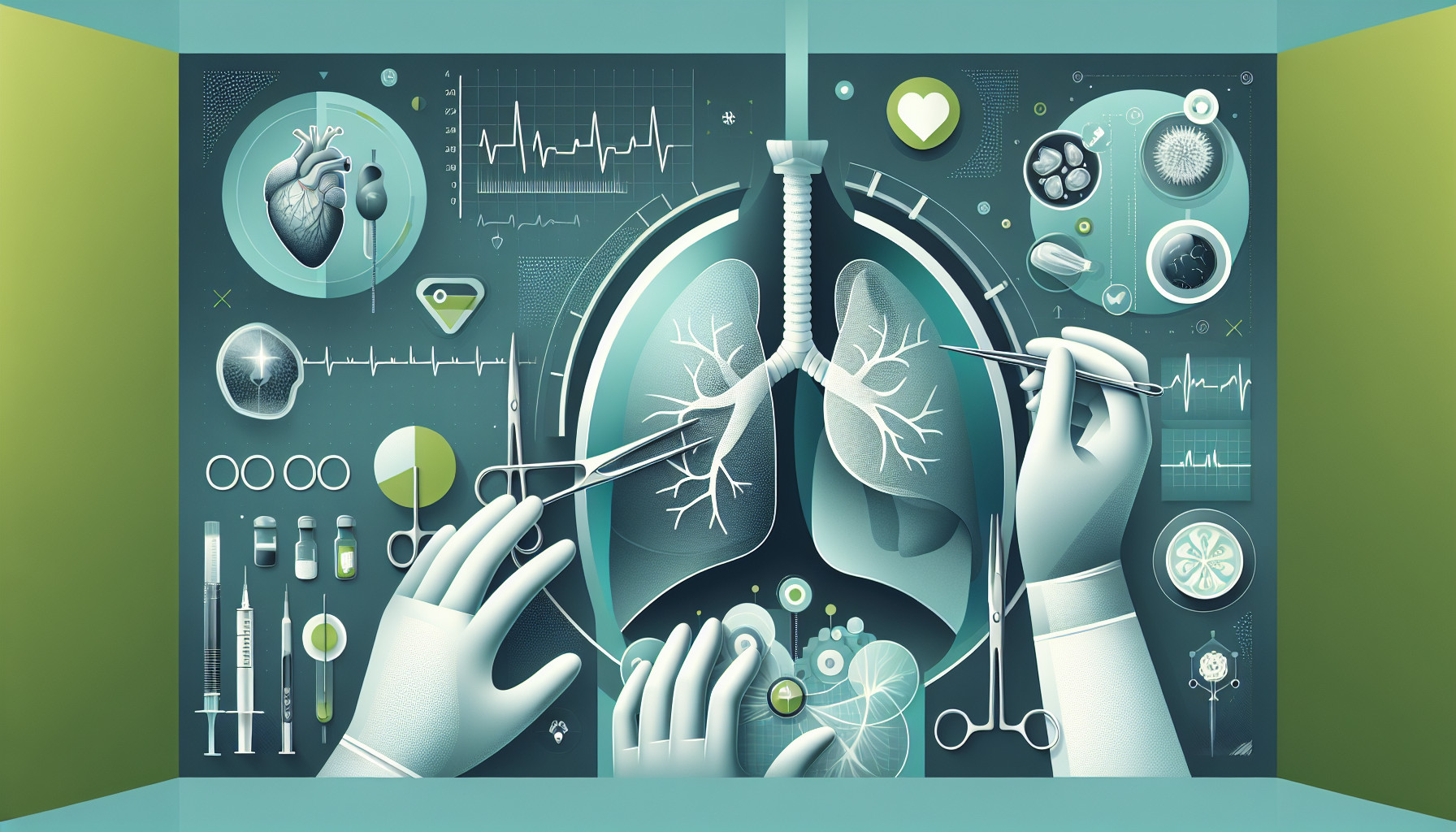Our Summary
The paper discusses the challenges of managing patients after a lung transplant. Many of these patients - up to 55% - are malnourished or at risk of malnutrition before their surgery, which often worsens after the operation. Providing nutritional support can be complicated due to fluctuations in blood pressure, abnormal lab results, and issues with the digestive system. Unlike other organ transplant patients, those who’ve had a lung transplant might experience problems like slow stomach emptying, esophagus dysfunction, and severe acid reflux. These conditions make it difficult to provide proper nutrition quickly. The paper suggests that dietitians working with lung transplant patients must understand and be prepared for these potential risks and adjust the patient’s nutritional plan as needed. The authors provide recommendations for best practices to overcome these challenges and improve the patient’s nutritional status during their hospital stay after a lung transplant.
FAQs
- What are some of the main challenges in managing patients after a lung transplant?
- What are the common digestive system issues that lung transplant patients might experience?
- What are the recommendations given for dietitians working with lung transplant patients?
Doctor’s Tip
One helpful tip a doctor might tell a patient about lung transplant is to follow a strict and balanced nutritional plan provided by a dietitian. It is important to ensure that the patient is getting the necessary nutrients to support their recovery and overall health. Additionally, staying hydrated and avoiding certain foods that can exacerbate digestive issues post-transplant can also be beneficial. Regular follow-up appointments with healthcare providers and communication about any changes or concerns in diet and nutrition are crucial for successful long-term outcomes after a lung transplant.
Suitable For
Patients who are typically recommended for a lung transplant are those with end-stage lung disease, such as cystic fibrosis, chronic obstructive pulmonary disease (COPD), idiopathic pulmonary fibrosis, and pulmonary hypertension. These patients have severe lung damage that significantly impairs their ability to breathe and function normally. Lung transplant is considered when other treatment options have been exhausted, and the patient’s quality of life is severely impacted. Additionally, patients must meet certain criteria, such as being non-smokers, having a stable mental health status, and being able to comply with post-transplant care and medications.
Timeline
Before lung transplant:
- Patient is evaluated by a medical team to determine if they are a suitable candidate for a lung transplant
- Patient undergoes extensive testing to assess their overall health and lung function
- Patient is placed on a waiting list for a suitable donor
- Patient may experience worsening symptoms and decline in health while waiting for a transplant
After lung transplant:
- Patient undergoes surgery to receive a new lung or lungs
- Patient is closely monitored in the intensive care unit for several days post-surgery
- Patient begins a regimen of immunosuppressant medications to prevent rejection of the new lung
- Patient undergoes physical therapy to regain lung function and strength
- Patient may experience complications such as infection, rejection, or side effects from medications
- Patient is discharged from the hospital and continues to be monitored by their medical team
- Patient undergoes regular follow-up appointments and monitoring to ensure the success of the transplant and manage any complications
- Patient must adhere to a strict medication regimen, lifestyle changes, and follow-up care for the rest of their life
What to Ask Your Doctor
What are the potential risks and complications associated with a lung transplant that could impact my nutritional status?
How will my nutritional needs change after the transplant surgery?
What type of dietary restrictions or modifications will I need to follow post-transplant?
How often will I need to meet with a dietitian to monitor my nutritional status?
What support services are available to help me maintain a healthy diet after the transplant?
How can I ensure that I am getting enough nutrients to support my recovery and overall health?
Are there any specific supplements or medications I should take to support my nutritional needs post-transplant?
How can I manage any digestive issues or complications that may arise after the transplant surgery?
What signs or symptoms should I watch out for that may indicate a problem with my nutritional status post-transplant?
Are there any specific dietary or lifestyle recommendations that can help improve my overall health and well-being after a lung transplant?
Reference
Authors: Doyle B, Sirandas B. Journal: Nutr Clin Pract. 2025 Aug;40(4):805-815. doi: 10.1002/ncp.11325. Epub 2025 Jun 13. PMID: 40511615
